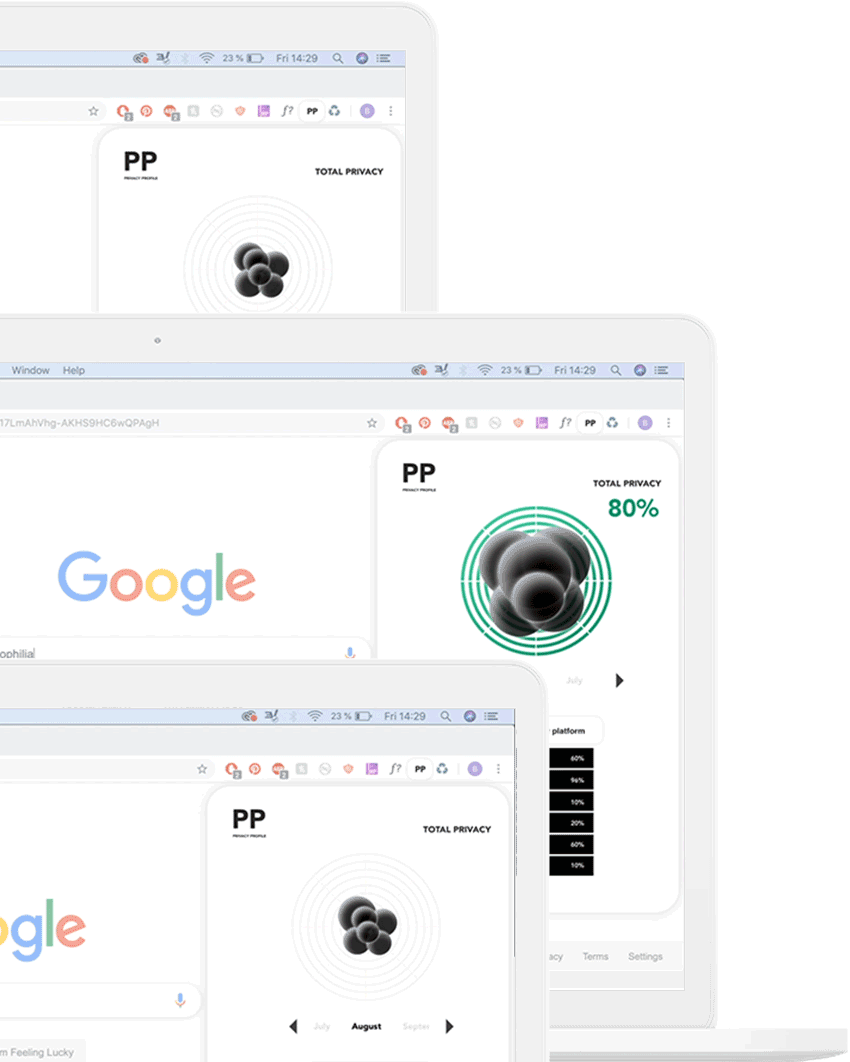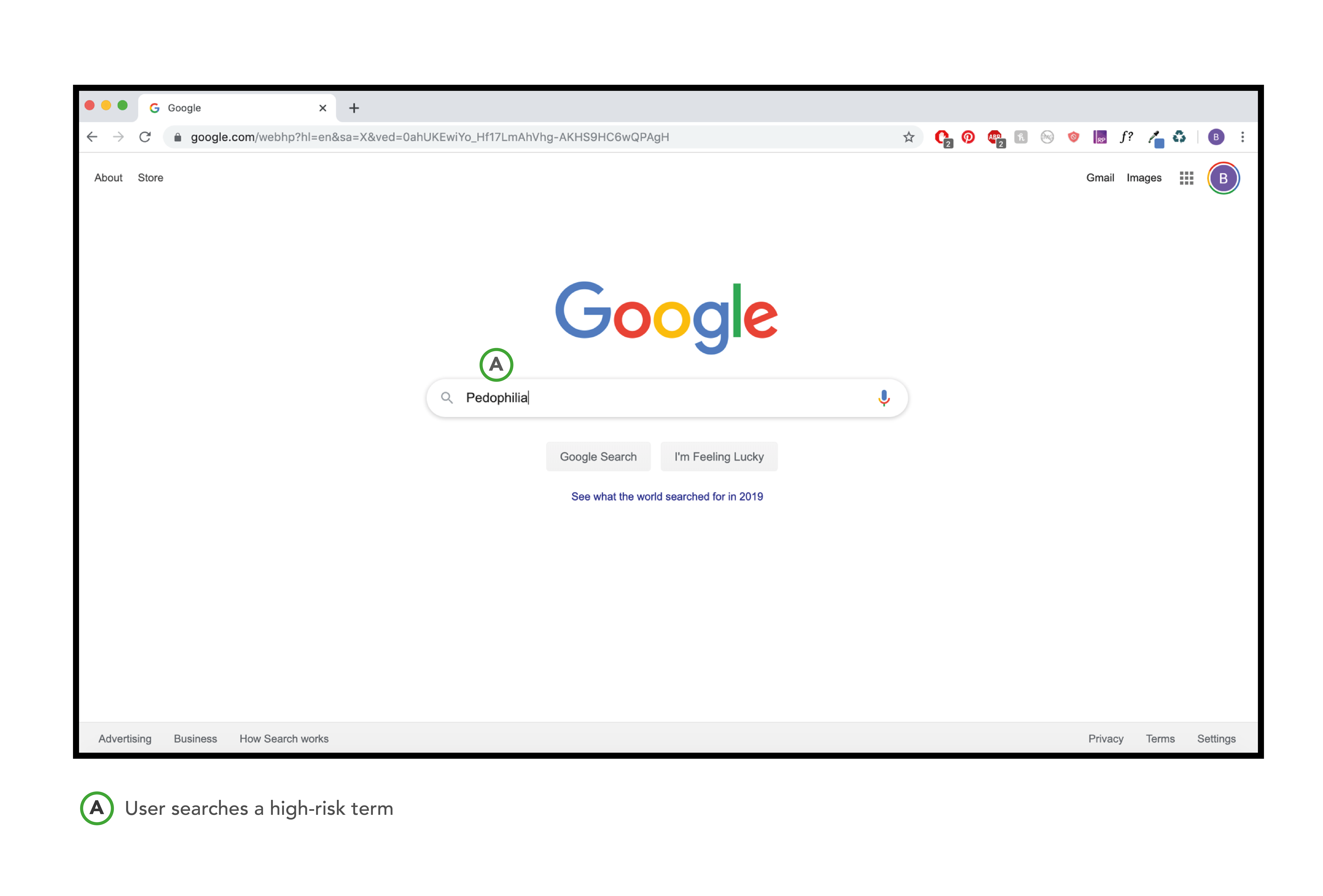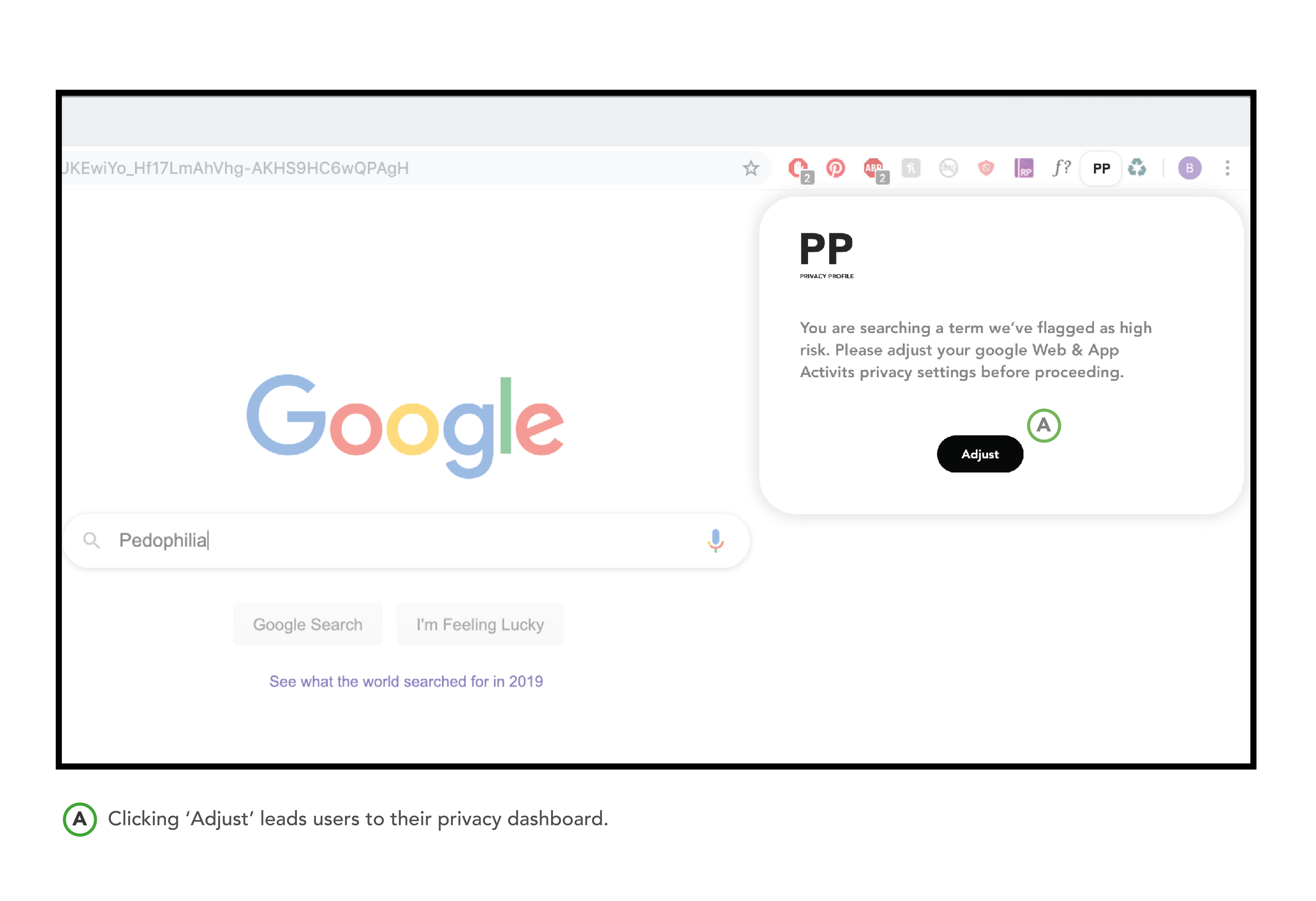Privacy Profiler
Manage Your Online Privacy

Concept
Whether algorithmic profiling is done to serve us better or render us more predictable and manageable consumers may depend on one’s specific perspective. However, the fact remains that our online activities are ceaselessly tracked and used to build identities and versions of ourselves we (mostly) never consented in creating and have no means to manage, hence potentially having detrimental effects on our personal and professional lives.
Even though most people are aware of this phenomenon, thanks to targeted advertisements and content recommendation systems, taking caution on how we interact with online platforms is rarely on the forefront of people’s minds. Online platforms often do give users options to opt out of their information being tracked. However, a lot of these options are opt-out based and not readily available to users when their activities might warrant privacy, leading people to either be unaware of their options or not want to make the effort of securing themselves.
This project proposes a tool that informs users about their security options and helps them be more cautious. Privacy Profiler (PP) is a browser extension that brokers users and online platforms by keeping track of their interactions and informing them on their combined and platform-level vulnerability. It also provides users with a centralized and user friendly hub where they can manage their privacy options across platforms.
Features
- A warning system that blocks users from searching/posting ‘high-risk’ terms
- A dashboard visualizing the user’s platform-level and combined vulnerability
- An option for users to update privacy settings of a specific platform on PP
Even though most people are aware of this phenomenon, thanks to targeted advertisements and content recommendation systems, taking caution on how we interact with online platforms is rarely on the forefront of people’s minds. Online platforms often do give users options to opt out of their information being tracked. However, a lot of these options are opt-out based and not readily available to users when their activities might warrant privacy, leading people to either be unaware of their options or not want to make the effort of securing themselves.
This project proposes a tool that informs users about their security options and helps them be more cautious. Privacy Profiler (PP) is a browser extension that brokers users and online platforms by keeping track of their interactions and informing them on their combined and platform-level vulnerability. It also provides users with a centralized and user friendly hub where they can manage their privacy options across platforms.
Features
- A warning system that blocks users from searching/posting ‘high-risk’ terms
- A dashboard visualizing the user’s platform-level and combined vulnerability
- An option for users to update privacy settings of a specific platform on PP
Features
- A warning system that blocks users from searching/posting ‘high-risk’ terms
- A dashboard visualizing the user’s platform-level and combined vulnerability
- An option for users to update privacy settings of a specific platform on PP
- A dashboard visualizing the user’s platform-level and combined vulnerability
- An option for users to update privacy settings of a specific platform on PP
Scenario
A typical use case would be an individual searching for a term/topic with undesirable associations. Let’s imagine a scenario where a user wants to search the term ‘pedophilia’.

High Risk Terms warning
PP’s system would recognize the term ‘pedophilia’ to be high risk and block the user from searching them or posting about it on social media, unless they are aware of or made the necessary privacy adjustment in the relevant online platform.
